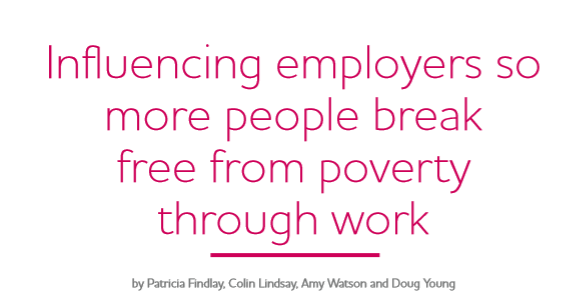Research: Influencing employers so more people break free from poverty through work
Key findings
- Currently one in eight UK workers are trapped in poverty: that’s just over 4 million people being held back.
- Employers represent an important part of any strategy to solve in-work poverty.
- There is a need to build on existing resources and tools that can help employers gain a better understanding of employees’ financial wellbeing and/or experiences of in-work poverty.
- Paying wages above the real Living Wage rate and providing security in working hours are among the most important contributions employers can make. Some employers pointed to training and in-work progression strategies as a means of providing a route to better jobs for employees.
- Business support services and other influencers need to help employers weigh the costs and benefits of taking action on low pay, and especially help business leaders to ‘design in’ decent pay and fair work at the early stages of their business’s development.
- There is a strong business case for individual employers to act on low pay and in-work poverty, including improved recruitment and retention, increased employee performance and reputational gains with customers.







